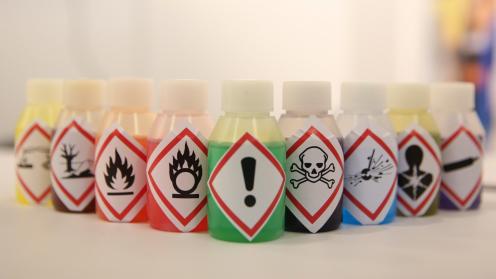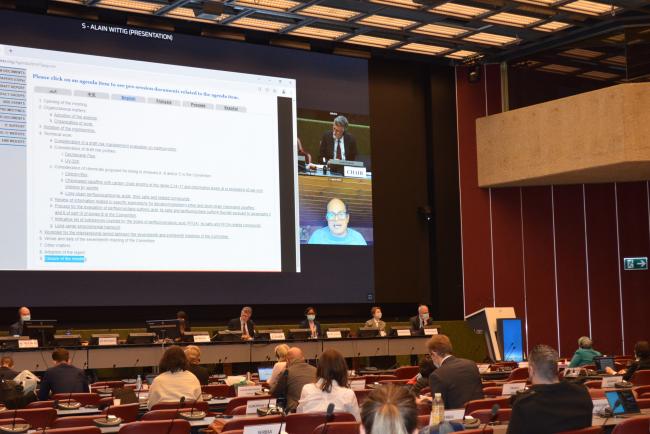The POPRC adopted decisions on every chemical on the agenda. Each chemical now moves to the next stage of review. In the case of methoxychlor, the review is concluded.
The POPRC agreed to a recommendation that methoxychlor be listed in Annex A of the Stockholm Convention without any specific exemptions. The recommendation will be passed to the next meeting of the Stockholm Convention Conference of the Parties tentatively schedule for June 2022, which will make the final decision about whether or not to list the chemical in Annex A. If it is listed, production and use of this pesticide will be eliminated.
All three of the chemicals that were nominated as potential persistent organic pollutants (POPs) were moved to the next stage of the review (Annex E) where they will be further scrutinized to determine if they are POPs. These chemicals are:
- Chlorpyrifos, a pesticide;
- Chlorinated paraffins with carbon chain lengths in the range C14-17 and chlorination levels at or exceeding 45% chlorine by weight, which are used as flame retardants and plasticizers in plastics, as well as lubricants and coolants for metal forming operations; and
- Long-chain perfluorocarboxylic acids, their salts and related compounds, which are used in a range of products, such as coating products, fabric/carpet protectors, fire-fighting foams, automotive care products, and cosmetics.
At the next meeting, POPRC members will review the available information to determine if global action is warranted for these substances, due to their long-range environmental transport and significant adverse effects. Except for chlorpyrifos, members debated the range of substances to move forward, and these scope issues will continue to be discussed at the next meeting.
Two chemicals were already at the Annex E stage. For both, POPRC agreed that global action is warranted and moved the chemicals to the Annex F stage (that includes information on socio-economic considerations). For UV-328, a stabiliser used in plastic products such as some personal care products, rubber and coatings, members ultimately decided that the evidence of long-range environmental transport via marine plastics was sufficient. The POPRC referred to the precautionary approach that a lack of scientific uncertainty should not preclude action, although some members believed there was no uncertainty. For Dechlorane Plus, members noted an ongoing study on its adverse effects and agreed to include this information when the study becomes available.
The next POPRC meeting is tentatively scheduled for September 2022 in Rome, Italy. Chair Peter Dawson gaveled the meeting to a close at 6:47 pm CET (UTC+1).
To receive free coverage of global environmental events delivered to your inbox, subscribe to the ENB Update newsletter.







